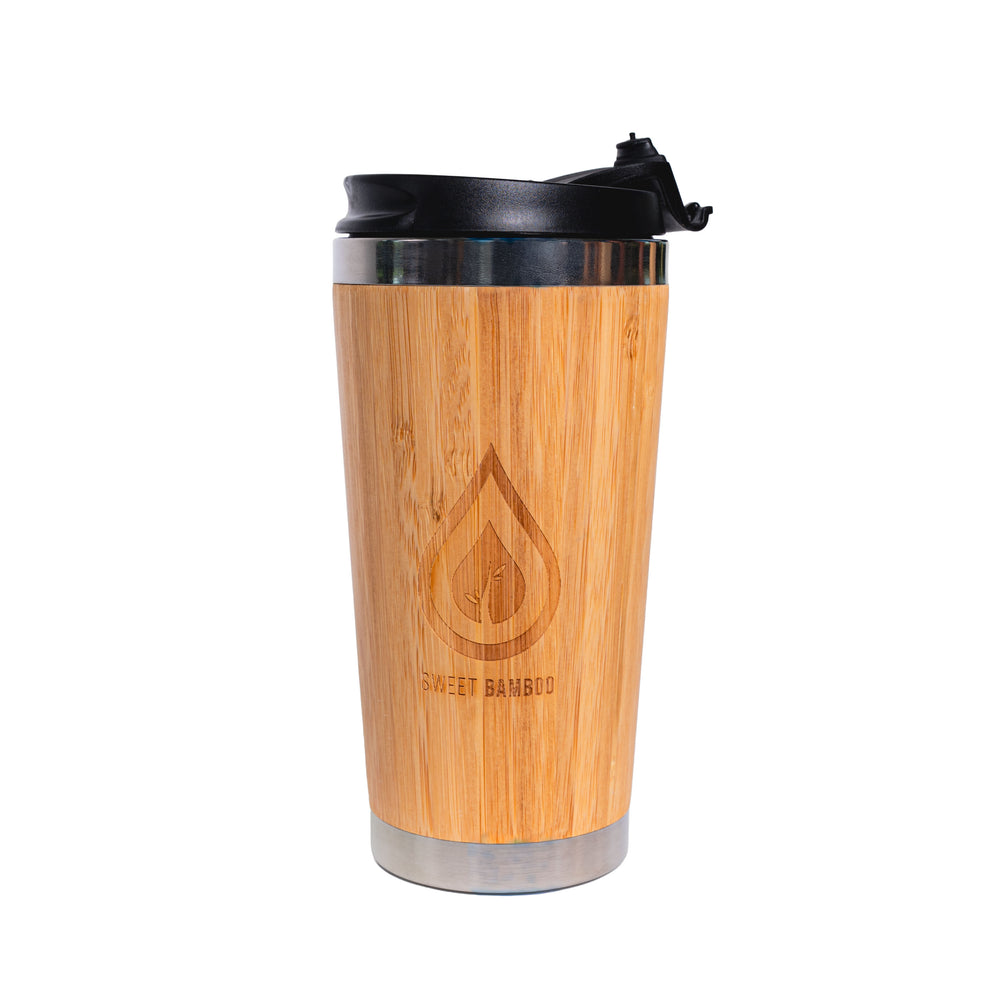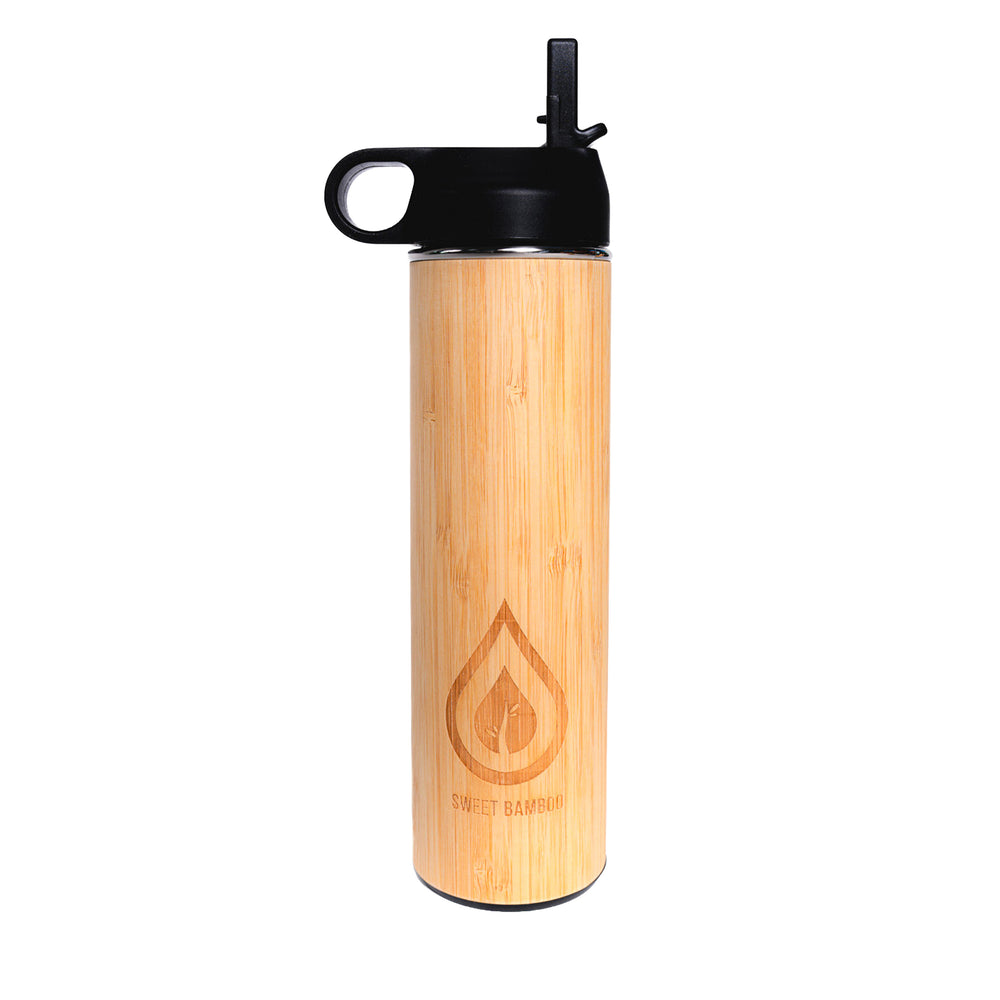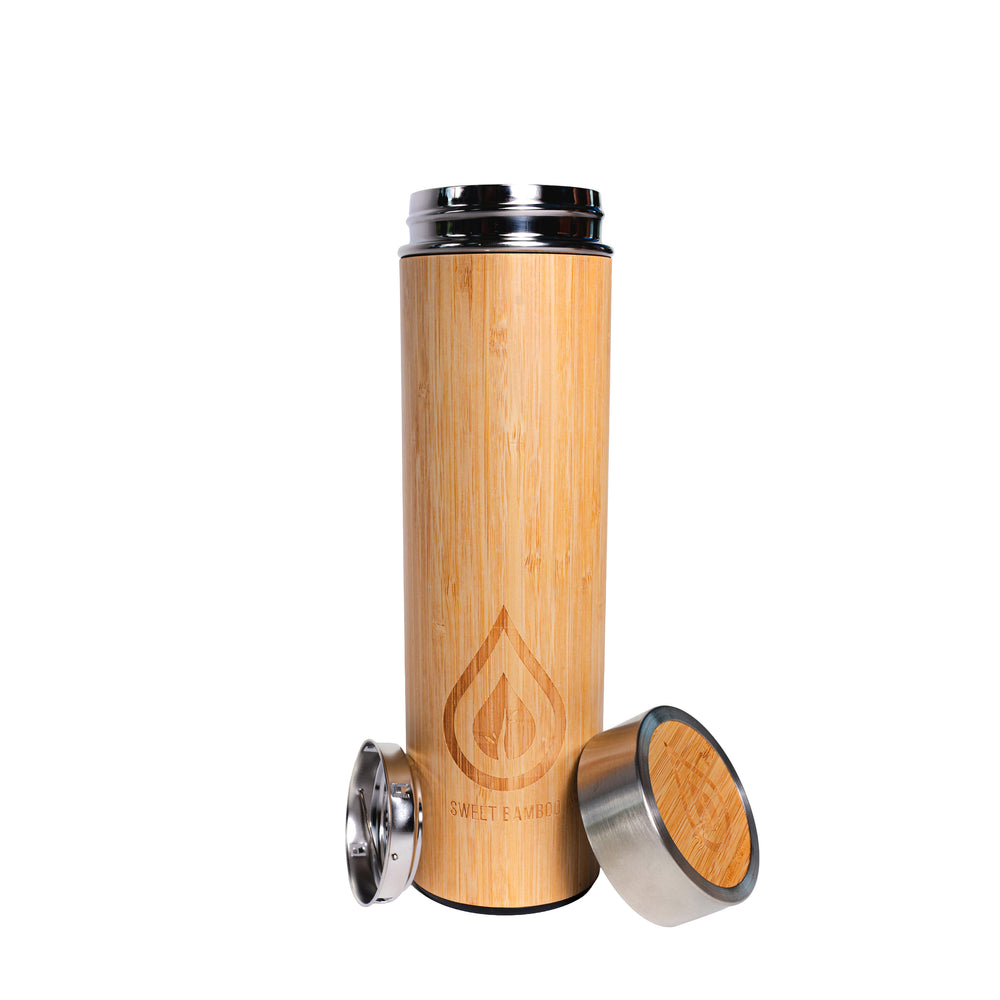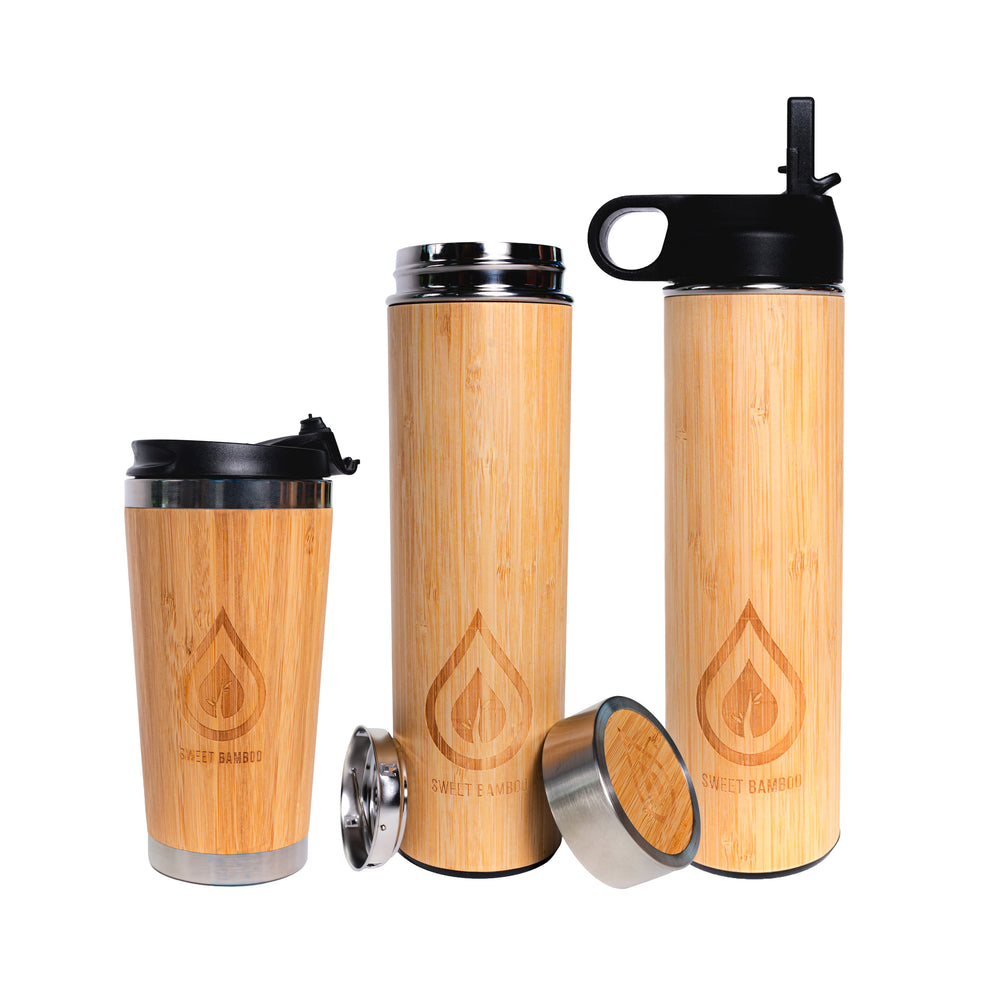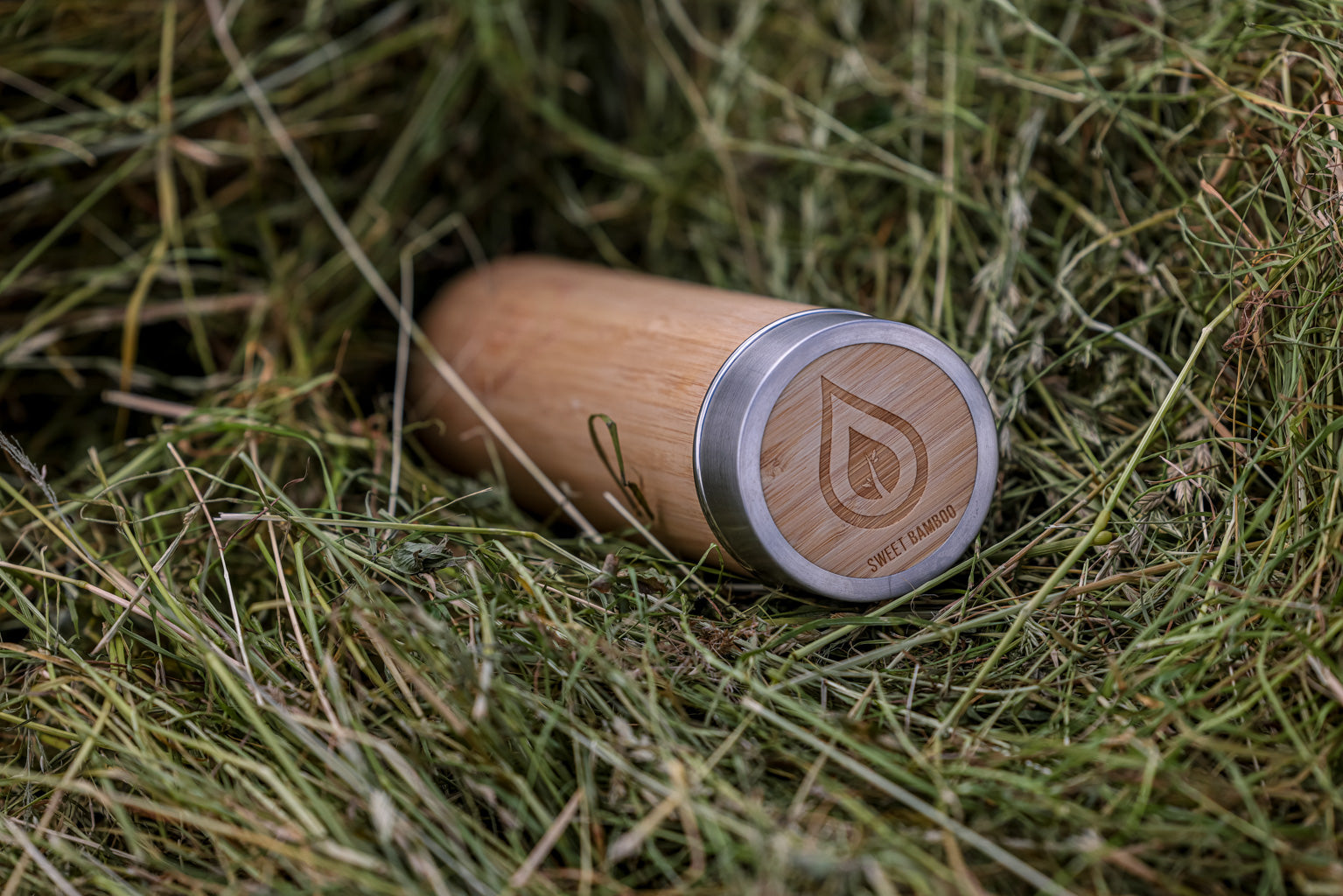

Sustainability at SweetBamboo
We’re not just here to sell bottles. We’re here to make reuse part of everyday life.
Single-use plastics are a huge and growing problem. From bottled water to disposable coffee cups, billions of items are thrown away each year after just one use. Most aren’t recycled. Many end up in landfill, or worse, polluting rivers and oceans.
At SweetBamboo, we believe the solution starts with small, practical changes. That’s why we create reusable, good-looking, and genuinely useful alternatives to throwaway culture.
The problem with single-use
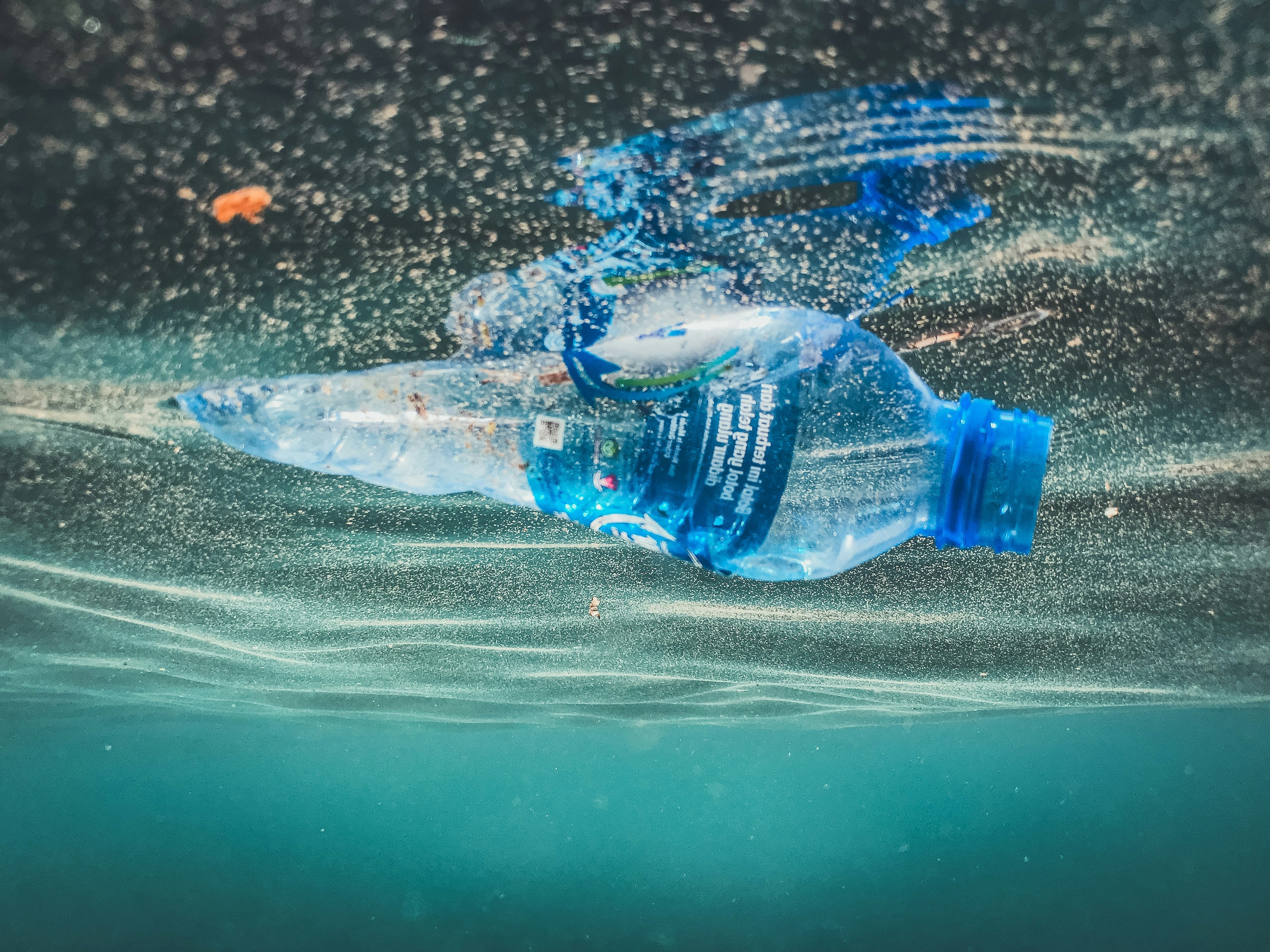

Bottled water
Globally, more than 480 billion plastic water bottles are used every year.
Most of these take hundreds of years to break down.
Bottling water uses around 6 litres of water to produce just 1.5 litres for sale.
Only a tiny fraction are made with recycled plastic.
Source: The Story of Stuff Project
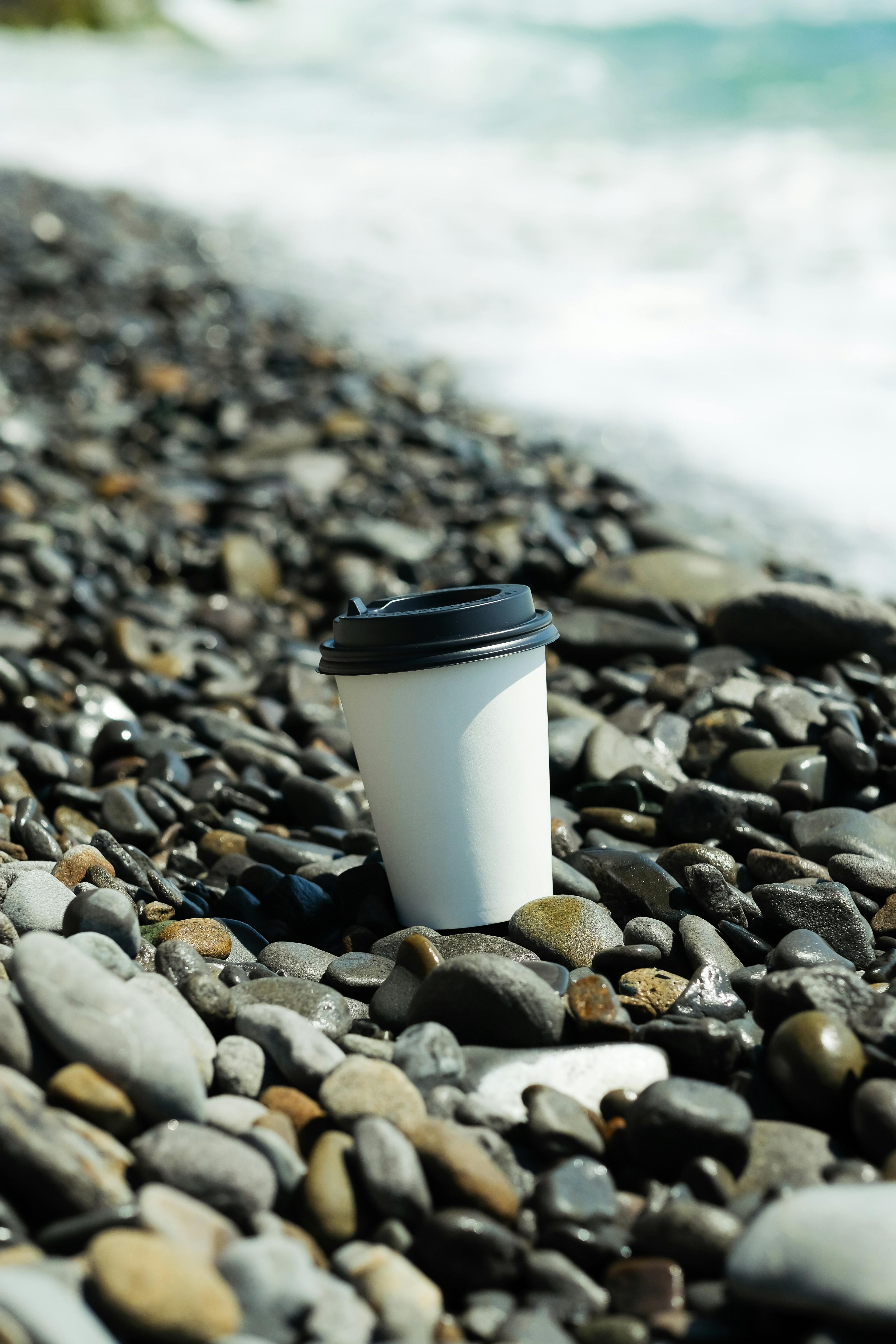

Disposable coffee cups
In the UK, we get through 7 million disposable coffee cups every day – that’s over 2.5 billion per year.
Due to their plastic lining, less than 1% are recycled.
The rest end up in landfill or are shipped overseas, where they often enter the ocean.
Source: BBC News
Our Approach
We make simple, sustainable products that do the job well, look good, and last for years. All our bottles and cups are:
- Made from durable, food-grade stainless steel
- Wrapped in sustainably sourced bamboo, giving every item a unique finish
- Free from BPA and harmful chemicals
- Designed to be reused over and over again
- Packaged plastic-free and fully recyclable
We don’t greenwash. Our products are made to reduce waste, full stop.
We Stand For
-
 Reduce waste
Reduce wasteEncouraging reuse over single-use
-
 Protect nature
Protect natureBy limiting demand for plastic, oil and unnecessary production
-
Support change
By making sustainable choices easier for everyone
Take Action
Whether it’s cutting back on plastic bottles or ditching single-use coffee cups, one swap makes a difference. By using a SweetBamboo bottle or cup, you:
- Prevent waste from entering landfill or oceans
- Lower your carbon footprint
- Save money over time
- Support a small UK brand with a big mission
Browse our range of reusable bottles and cups and make a change that lasts.
- Fuelling climate change - Bottling water releases 2.5 million tons of carbon dioxide into the atmosphere each year.
- Reducing the worlds water supply - Water is being pumped out the ground unnaturally at an outstanding rate, in fact half a million gallons of natural water everyday! which is depriving local fresh water ecosystems of their constant flow of water. As the water is pumped out upstream the amount of water making it downstream is significantly reduced and therefore rivers and streams start to dry up and suffer droughts.
- Increasing the amount of plastic in the environment - Worldwide over 100 billion gallons of bottled water is consumed each year .That’s a lot of plastic being introduced into our environment! An annual estimate of around 480 billion plastic bottles which can take up to 450 years to decompose.
- Damaging underlying geology - Bottled water companies like Nestle, often dig further and further down into already fragile aquifers to try and keep up with the current demand of bottled water which is not sustainable and is causing irreparable damage to the environment.
- A very linear system - Only a small % of recycled bottles are used to make new bottles. Coca-cola sources only 7% of its plastic from recycled material, while Nestle uses just 6%. WHY? Because its cheaper and easier for them to create new plastic bottles and existing bottles to be incinerated or put to landfill.
- Fossil fuel use- Plastic bottles that are currently produced are made from virgin polyethylene terephthalate (PET). The plastic is comprised of non-renewable fossil fuels like crude oil, which are a finite resource. For example, more than 17 million barrels of oil are required to produce enough plastic water bottles to meet America’s annual demand for bottled water.
- The production of bottled water consumes additional water for the manufacturing process. More than 6 litres are required to produce and cool 1.5 litres of bottled water, which is clearly far from sustainable.
- Bottled water companies often discharge their ‘waste water’ into local rivers and streams, which can cause harmful effects on freshwater organisms. This is more common in developing countries where there are a lack of environmental regulations.
- The University of Queensland. (2019). The real cost of Bottled water. Available from: https://sustainability.uq.edu.au/projects/recycling-and-waste-minimisation/real-cost-bottled-water [Accessed on: 2 March 2020]
- McLeod, L, Bharadway, L and Waldner, C (2014). 'Risk Factors Associated with the Choice to Drink Bottled Water and Tap Water in Rural Saskatchewan.
- Saylor, A, Prokopy, LS and Amberg, S (2011). ‘What’s Wrong with the Tap? Examining Perceptions of Tap Water and Bottled Water at Purdue University’, Environmental Management, vol. 48, pp. 588-601.
- Gleick, PH and Cooley, HS (2009). ‘Energy Implications of Bottled Water’, Environmental Research Letters, vol. 4.
- Hawkins, G (2011). ‘Packaging water: plastic bottles as market and public devices’, Economy and Society, vol. 40, no. 4, pp. 534-52.
- Harvard university. (2018). Reasons to avoid bottled water - sustainability. Available from: https://green.harvard.edu/tools-resources/green-tip/reasons-avoid-bottled-water [Accessed on: 2 March 2020]




